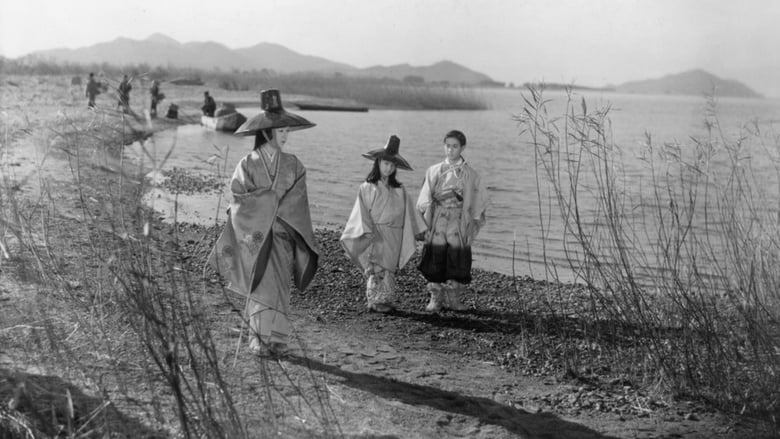← Back to Reviews

in
That is the important teaching passed unto Zushiō (Yoshiaki Hanayagi) and Anju (Kyōko Kagawa) by his father. "Always keep it with you", he says, as he also hands him a keepsake, a small figurine of the Goddess of Mercy. But time and circumstances often make us forget the most important lessons while leading us away, sometimes in the harshest ways. That is the backdrop of this iconic Japanese film from Kenji Mizoguchi.
Sansho the Bailiff follows Zushiō and Anju as they fend for themselves at the hands of Sanshō (Eitarō Shindō), a ruthless slave owner. Their father banished and their mother sold into prostitution, it would be easy for them to lose hope and forget about mercy. That is what happens to Zushiō, who becomes hopeless and seems complacent in following Sanshō's steps, despite Anju's pleas to not forget their father's words.
It is interesting that the film is titled the way it is, considering that Sanshō is after all a secondary character. We meet him 30 minutes into the film and compared to other characters, he's barely in it. But what's important is what Sanshō represents. He is a presence that hangs above Zushiō all through the film. He is the opposite of his father's teachings: merciless and unforgiving, and by spending more time under his fist, Zushiō becomes more like him and less like his father.
This is my first film from Mizoguchi, but certainly one that has stuck in my mind. Not only for its striking visuals, flawless direction, and shot composition, but also for its sorrowful and powerful message. There is perhaps one event that still bugs me, cause I still don't think it feels true to what we've seen from the main characters, but I understand Mizoguchi's intentions, and it ultimately doesn't detract of the overall impact.
Sansho the Bailiff could be seen as a tragic story of time lost and wasted youth, but it is also a story of change and redemption, mercy and hope; one where there's still time to do good and make up for the years lost, if we keep that teaching to ourselves and never give up.
Grade:
SANSHO THE BAILIFF
(1954, Mizoguchi)
A film from the 1950s • A film about mothers

(1954, Mizoguchi)
A film from the 1950s • A film about mothers

"A man is not a human being without mercy. Even if you are hard on yourself, be merciful to others."
That is the important teaching passed unto Zushiō (Yoshiaki Hanayagi) and Anju (Kyōko Kagawa) by his father. "Always keep it with you", he says, as he also hands him a keepsake, a small figurine of the Goddess of Mercy. But time and circumstances often make us forget the most important lessons while leading us away, sometimes in the harshest ways. That is the backdrop of this iconic Japanese film from Kenji Mizoguchi.
Sansho the Bailiff follows Zushiō and Anju as they fend for themselves at the hands of Sanshō (Eitarō Shindō), a ruthless slave owner. Their father banished and their mother sold into prostitution, it would be easy for them to lose hope and forget about mercy. That is what happens to Zushiō, who becomes hopeless and seems complacent in following Sanshō's steps, despite Anju's pleas to not forget their father's words.
It is interesting that the film is titled the way it is, considering that Sanshō is after all a secondary character. We meet him 30 minutes into the film and compared to other characters, he's barely in it. But what's important is what Sanshō represents. He is a presence that hangs above Zushiō all through the film. He is the opposite of his father's teachings: merciless and unforgiving, and by spending more time under his fist, Zushiō becomes more like him and less like his father.
This is my first film from Mizoguchi, but certainly one that has stuck in my mind. Not only for its striking visuals, flawless direction, and shot composition, but also for its sorrowful and powerful message. There is perhaps one event that still bugs me, cause I still don't think it feels true to what we've seen from the main characters, but I understand Mizoguchi's intentions, and it ultimately doesn't detract of the overall impact.
Sansho the Bailiff could be seen as a tragic story of time lost and wasted youth, but it is also a story of change and redemption, mercy and hope; one where there's still time to do good and make up for the years lost, if we keep that teaching to ourselves and never give up.
Grade:
